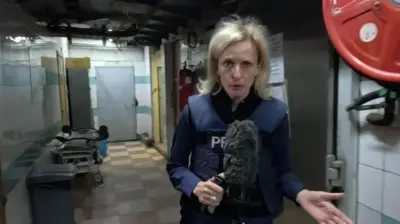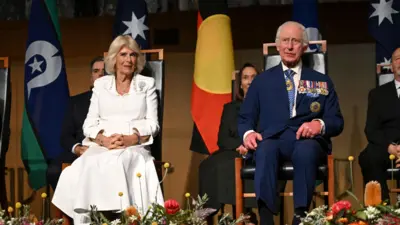We've updated our Privacy and Cookies Policy
We've made some important changes to our Privacy and Cookies Policy and we want you to know what this means for you and your data.
Head teachers vote to oppose grammar school expansion
Image source, Getty Images
- Author, Hannah Richardson
- Role, В鶹№ЩНшКЧТіИлїЪ News education reporter in Telford
Head teachers have agreed to "vigorously" oppose the expansion of grammar schools in England.
The National Association of Head Teachers (NAHT) backed moves to reject a new wave of grammars in the absence of proof that it aids social mobility.
Its conference heard how Conservative plans to expand selection would add to pressures on schools.
Prime Minister Theresa May argues grammars boost opportunities for bright but disadvantaged children.
But Labour and the Liberal Democrats disagree.
The NAHT argued that investment in early-years education is a more effective way of ensuring that poor children get as good an education as their richer peers.
'Perfect storm'
It said that by the time children leave primary school, the advantages of coming from a wealthy background are entrenched.
Proposing the motion at the NAHT conference in Telford, Robert Campbell said: "The government is fixated with delivering a policy for the few at the expense of the many."
However, it is not clear exactly how head teachers would actually oppose the planned expansion of selective schools.
The union is using its conference to highlight what it describes as a "perfect storm" of difficulties for secondary schools this summer which could have "dire consequences for pupils and standards".
Issues range from a new secondary exam system, struggles with recruitment or retention, and the ВЈ3bn real term cuts to schools budgets by 2020.
On funding, General Secretary Russell Hobby said there was a sense that the pleas of head teachers, teachers and parents over school funding were still not being heard by ministers.
'Election issue'
He said: "All that's left is for us to make it a general election issue.
"We need to make sure that all our parliamentary constituencies are asking questions on school funding."
NAHT heads said schools were increasingly being required to fill the gaps left by under-funded public services, as finances become progressively stretched at local level.
Past president Kim Johnson said schools in his area, Medway, were being asked to part-fund police officers working in schools but they simply did not have the funds to do so.
He said out of the ВЈ6m budget for his special school, Bradfields Academy, he was paying ВЈ200,000 towards support on social care and health issues for his pupils.
This included two social workers, three therapists and counsellors, who were not being provided by frontline public services.
The government continues to insist it is funding schools at a record level.
Top Stories
More to explore
Most read
Content is not available








